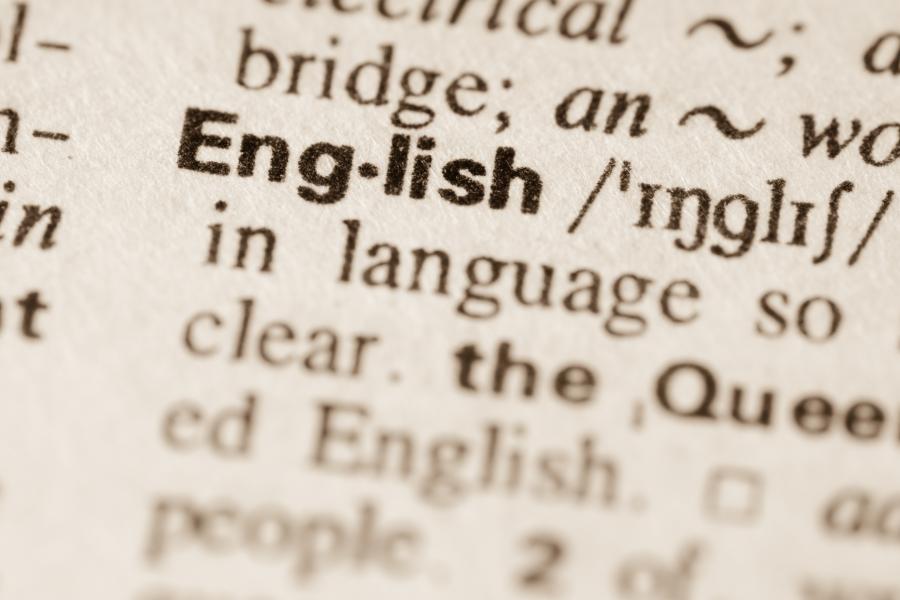About This Course
Our English Language and English Literature (with Foundation Year) option is a four-year course with an integrated foundation year which leads to the same qualification as our three-year honours degree. It has been specifically designed for those wanting to undertake degree-level study but who may not meet the entry requirements or have traditional qualifications.
This English Language and English Literature (with Foundation Year) course gives you the opportunity to study two important aspects of the best-described language in the world. You will examine how English works, why and how it is used, and where it has come from.
The English Language component of this degree will give you the opportunity to learn about the grammatical structure of English (e.g., how words and sentences are formed), how meaning is made, interpreted and extended across whole discourses, how sounds are formed, produced, and understood, and how language use varies across speakers and groups and how it changes over time. You will also explore the history of English, the development and emergence English dialects and World Englishes, how English is used in society (e.g., how socio-cultural variables shape the use of English) and the role of English in society, in education and as a global lingua franca.
In studying English Literature, you will read and learn to critically analyse a range of English literature in different genres and forms and from across the span of English history, from Anglo-Saxon times to today. You will also develop critical techniques, skills in reading literature and study texts and authors from a wide range of English, British and American literature. Literary works will be studied in different of ways - looking at social or political contexts or taking a more linguistic or stylistic approach.
The Foundation Year (Year 0) offers you the chance to expand and strengthen your confidence, skills and knowledge – ensuring that you are well-prepared and qualified to progress into Year 1 of the undergraduate degree.
Why choose Bangor University for this course?
- We are a vibrant, accessible, friendly department with staff committed to high-quality teaching, excellent student experience, strong pastoral support, and the integration of current cutting-edge research and topics into your lectures throughout the duration of your studies. We are also dedicated to ensuring that our English Language and English Literature (with Foundation Year) students develop excellent skills in critical thinking, data analysis, presentation and independent research to enhance their employability upon graduation.
- We are committed to small-group teaching: many of our modules are delivered through weekly seminars, alongside lectures; others are taught solely by weekly seminars.
- You will gain sound insight into the structure and use of language as well as develop the ability to critically analyse a wide range of literature.
- Teaching staff are active researchers in a range of theoretical and applied areas of English Language, Linguistics, Applied Linguistics and English Literature - many have international reputations in the field.
- Our state-of-the-art linguistics and English language learning facilities include a professional grade sound / recording studio (our Speech laboratory), an eye tracking laboratory, and an event-related potential (ERP) laboratory and a corpus-linguistics resource facility. We also have audio and video equipment that can be checked out for field work. Our facilities also include an extensive collection of books on Linguistics and English Language and a language library which is maintained by our undergraduate student association - the Bangor Linguistics Society (BLS).
- You will join a vibrant literary community. Our close links with Pontio, the University’s, £40 million Arts Centre, local theatres, poetry groups and vibrant student societies – including our Bangor English Drama Society (BEDS) – there are lots of chances for you to get involved.
Additional Course Options
This course is available with a Placement Year option where you will study for 1 additional year. The Placement Year is undertaken at the end of the second year and students are away for the whole of the academic year.
The Placement Year provides you with a fantastic opportunity to broaden your horizons and develop valuable skills and contacts through working with a self-sourced organisation relevant to your degree subject. The minimum period in placement (at one or more locations) is seven calendar months; more usually you would spend 10-12 months with a placement provider. You would normally start sometime in the period June to September of your second year and finish between June and September the following year. Placements can be UK-based or overseas and you will work with staff to plan and finalise the placement arrangements.
You will be expected to find and arrange a suitable placement to complement your degree and will be fully supported throughout by a dedicated member of staff at your academic School and the University’s Careers and Employability Services.
You will have the opportunity to fully consider this option when you have started your course at Bangor and can make an application for a transfer onto this pathway at the appropriate time. Read more about the work experience opportunities that may be available to you or, if you have any questions, please get in touch.
This course is available with an International Experience Year option where you will study or work abroad for 1 additional year. You will have ‘with International Experience’ added to your degree title on graduating.
Studying abroad is a great opportunity to see a different way of life, learn about new cultures and broaden your horizons. With international experience of this kind, you’ll really improve your career prospects. There are a wide variety of destinations and partner universities to choose from. If you plan to study in a country where English is not spoken natively, there may be language courses available for you at Bangor and in your host university to improve your language skills.
You will have the opportunity to fully consider this option at any time during your degree at Bangor and make your application. If you have any questions in the meantime, please get in touch.
Read more about the International Experience Year programme and see the studying or working abroad options on the Student Exchanges section of our website.
Course Content
On this English Language and English Literature (with Foundation year) degree, you will spend about 8-12 hours in lectures, seminars and tutorials each week. You will also spend time reading, working on assignments, undertaking homework tasks, meeting lecturers and tutors in their offices, attending general seminars, and so on. Some English literature modules include theatre trips, film showings, gallery visits and the chance to hear visiting writers.
Assessment types vary. English Language modules assessment includes: essay writing, report writing, data analysis, practical assignments, empirical research studies, oral presentations and exams (including online tests). For English Literature modules assessment is increasingly through coursework.
Modules for the current academic year
Module listings are for guide purposes only and are subject to change. Find out what our students are currently studying on the English Language and English Literature (with Foundation Year) BA (Hons) Modules page.
Course content is for guidance purposes only and may be subject to change.
Facilities
English Language Facilities
- We have state-of-the-art learning facilities which include a professional grade sound / recording studio (our Speech laboratory), an eye tracking laboratory, and an event-related potential (ERP) laboratory and a corpus-linguistics resource facility. We also have audio and video equipment that can be checked out for field work.
- Our facilities also include an extensive collection of books on Linguistics and English Language and a language library which is maintained by our undergraduate student association - the Bangor Linguistics Society (BLS).
General University Facilities
Library and Archive Services
Our four libraries provide a range of attractive study environments including collaborative work areas, meeting rooms and silent study spaces.
We have an extensive collection of books and journals and many of the journals are available online in full-text format.
We house one of the largest university-based archives not only in Wales, but also the UK. Allied to the Archives is the Special Collections of rare printed books.
Learning Resources
There is a range of learning resources available, supported by experienced staff, to help you in your studies.
The University’s IT Services provides computing, media and reprographics facilities and services including:
- Over 1,150 computers for students, with some PC rooms open 24 hours a day
- Blackboard, a commercial Virtual Learning Environment, that makes learning materials available on-line.
Course Costs
General University Costs
Home (UK) students
- The cost of a full-time undergraduate course is £9,000 per year (2021/22 entry and 2022/23 entry).
- The fee for all placement, international, and sandwich years is £1,350 (2021/22 and 2022/23).
- More information on fees and finance for Home (UK) students.
International (including EU) students
Additional Costs
There are also some common additional costs that are likely to arise for students on all courses, for example:
- If you choose to study abroad or take the International Experience Year as part of your course.
- If you attend your Graduation Ceremony, there will be a cost for gown hire (£25-£75) and cost for additional guest tickets (c.£12 each).
Course-specific additional costs
Depending on the course you are studying, there may be additional course-specific costs that you will be required to meet. These fall into three categories:
- Mandatory Costs: these are related to a particular core or compulsory module that you’ll be required to complete to achieve your qualification e.g. compulsory field trips, uniforms for students on placement, DBS Check.
- Necessarily Incurred Costs: these may not be experienced by all students, and will vary depending on the course e.g. professional body membership, travel to placements, specialist software, personal safety equipment.
- Optional Costs: these depend on your choice of modules or activity and they are shown to give you an indication of the optional costs that may arise to make sure your choice is as informed as possible. These can include graduation events for your course, optional field trips, Welcome Week trips.
Entry Requirements
Offers are tariff based, 48 -88 tariff points, from Level 3 qualifications* e.g.
- A Levels (including: AS-levels, General Studies)
- BTEC Diplomas and Certificate
- Cambridge Technical Diplomas and Certificates
- City & Guilds Advanced Technical Diplomas
- International Baccalaureate
- Welsh Baccalaureate is accepted
- Access
- T-levels: considered on a case-by-case basis
- Extended Project Qualification (EPQ)
We also welcome applications from mature learners. Mature applicants and/or those with other qualifications are considered on individual merit
*For a full list of accepted Level 3 qualifications, go to www.ucas.com.
General University Requirements
To study for a degree, you’ll be asked for a minimum of UCAS Tariff points. For a fuller explanation of the UCAS Tariff Points, please see www.ucas.com.
We accept students with a wide range of qualifications and backgrounds and consider each application individually.
All students need to have good basic skills and the University also values IT and communication skills.
As part of the University’s policy, we consider applications from prospective disabled students on the same grounds as all other students.
We also consider applications from mature students who can demonstrate the motivation and commitment to study a university programme. Each year we enrol a significant number of mature students. For more information about studying as a mature student, see our Studying at Bangor section of the website.
EU and International Students' Entry Requirements
For detailed guidance on the entry requirements for EU and International Students, including the minimum English Language entry requirement, please visit the Entry Requirements by Country pages. International applicants can also visit the International Education Centre section of our website for further details.
Bangor University offers International Incorporated Bachelor Degrees for International students whose High School qualification is not equivalent to the UK school leaving qualification. The first year (or Year 0) is studied at Bangor University International College, an embedded College on our University campus and delivered by Oxford International Education Group.
Careers
A degree in English Language and English Literature (with Foundation year) provides subject knowledge and expertise. You will also develop important transferrable skills valued by a range of employers. These include critical reading and evaluation, research and analytical skills, project management skills, proficiency in diverse modes of presentation (written, electronic and spoken), problem solving skills, experience working independently, time management and team-work experience, information technology skills, and the chance to develop effective interpersonal communication.
English Language and English Literature graduates gain a broad range of skills applicable in a variety of occupations, such as media, education, advertising, management, publishing, civil service, community work (e.g., related to language policy and engagement), etc. In some cases, you will need further training and qualifications beyond what this course provides. A career in research is also an option, as is postgraduate study.
Opportunities at Bangor
The University’s Careers and Employability Service provides a wide range of resources to help you achieve your graduate ambitions.
The Bangor Employability Award (BEA)
The BEA is a comprehensive online course that you can work through at your own pace, taking you through all the steps you need to take to explore, prepare and apply for your dream career.
Internships
Bangor University runs a paid internship scheme within the university’s academic and service departments.
Student Volunteering
Volunteering widens your experience and improves your employability. Find out more about volunteering on the Students’ Union’s website.





